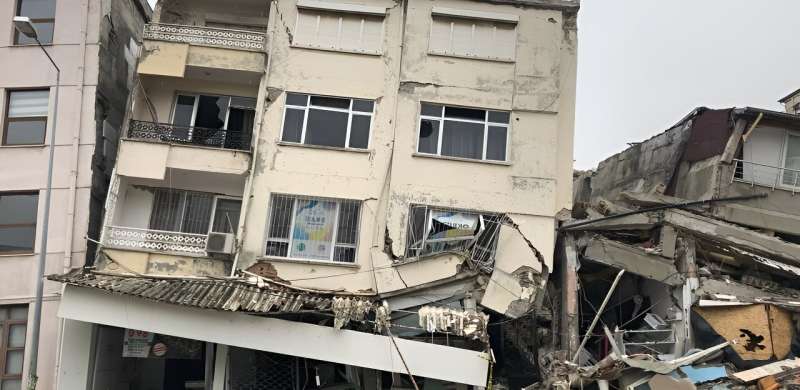This article has been reviewed according to Science X's editorial process and policies. Editors have highlighted the following attributes while ensuring the content's credibility:
fact-checked
trusted source
proofread
New report into Turkey–Syria earthquakes uncovers deficiencies in building structures, construction shortcuts

A new, independent field investigation into the aftermath of the Turkey–Syria earthquakes has found that a drive for profit has pushed all players within the construction industry to take shortcuts, with building stock primarily made of Reinforced Concrete (RC) structures, being the main cause of the casualties.
Findings show that deficiencies were also recorded among even the newest building stock. This is despite established technical know-how, state-of-the-art building codes and rigorous building regulations.
The longitudinal study report published Feb. 6 by the Institution of Structural Engineers for EEFIT, was co-led by Cambridge's Professor Emily So, Professor of Architectural Engineering and Director of the Cambridge University Center for Risk in the Built Environment (CURBE) and Dr. Yasemin Didem Aktas from the Faculty of Engineering Sciences at UCL.
The report found that the drive for profit pushes players within the construction industry to take shortcuts. It was recommended that the auditing and quality control mechanisms embedded in the legal and bureaucratic processes should be strengthened to ensure code compliance. The authors assert that the legalization of non-compliant buildings through amnesties cannot continue.
Critically, despite established technical know-how, state-of-the-art building codes and rigorous building regulations, deficiencies in Reinforced Concrete (RC) structures were found even in the newest building stock. This demonstrates that seismic resilience is not only a technical problem in Turkey, but one that demands a multi-sectoral and interdisciplinary dialogue, scrutinizing the regulatory system, bureaucracy, the legal and political backdrop within which the construction sector operates in Turkey.
Building stock is primarily composed of Reinforced Concrete structures, which were therefore the main cause of the casualties. The team saw problems with such structures across their whole lifecycle from design to implementation and post-occupancy stages. The structures therefore did not withstand the seismic pressures.
A review of building stock and infrastructure is critical to understand risk levels for future earthquakes. Lack of publicly available data is a big problem in Turkey, hindering not only a robust inquiry into damage and associated building characteristics, but also reliably establishing the risk profiles for future events.
Debris management and demolishment practices have not fully recognized the potential of mid-/long-term environmental and public health implications. Field observations and contacts in the affected communities show that they are already affected by the poor air quality.
The Compulsory Earthquake Insurance (CEI) is a system that was put in place in Turkey following the 1999 earthquakes to provide monetary reserves to fund the management of future disasters. The extent to which these funds have been used and how resources have been allocated remain unclear.
Professor So says, "The 2023 Türkiye and Syria earthquakes were truly tragic, hitting an already fragile population, including migrants. Our field work and remote analysis revealed many issues, including the issue of non-compliant buildings with little seismic resilience. Building code compliance needs to be strengthened."
More information: EEFIT Mission report: Turkey earthquake sequence February 2023. www.istructe.org/resources/rep … hquake-sequence-feb/




















